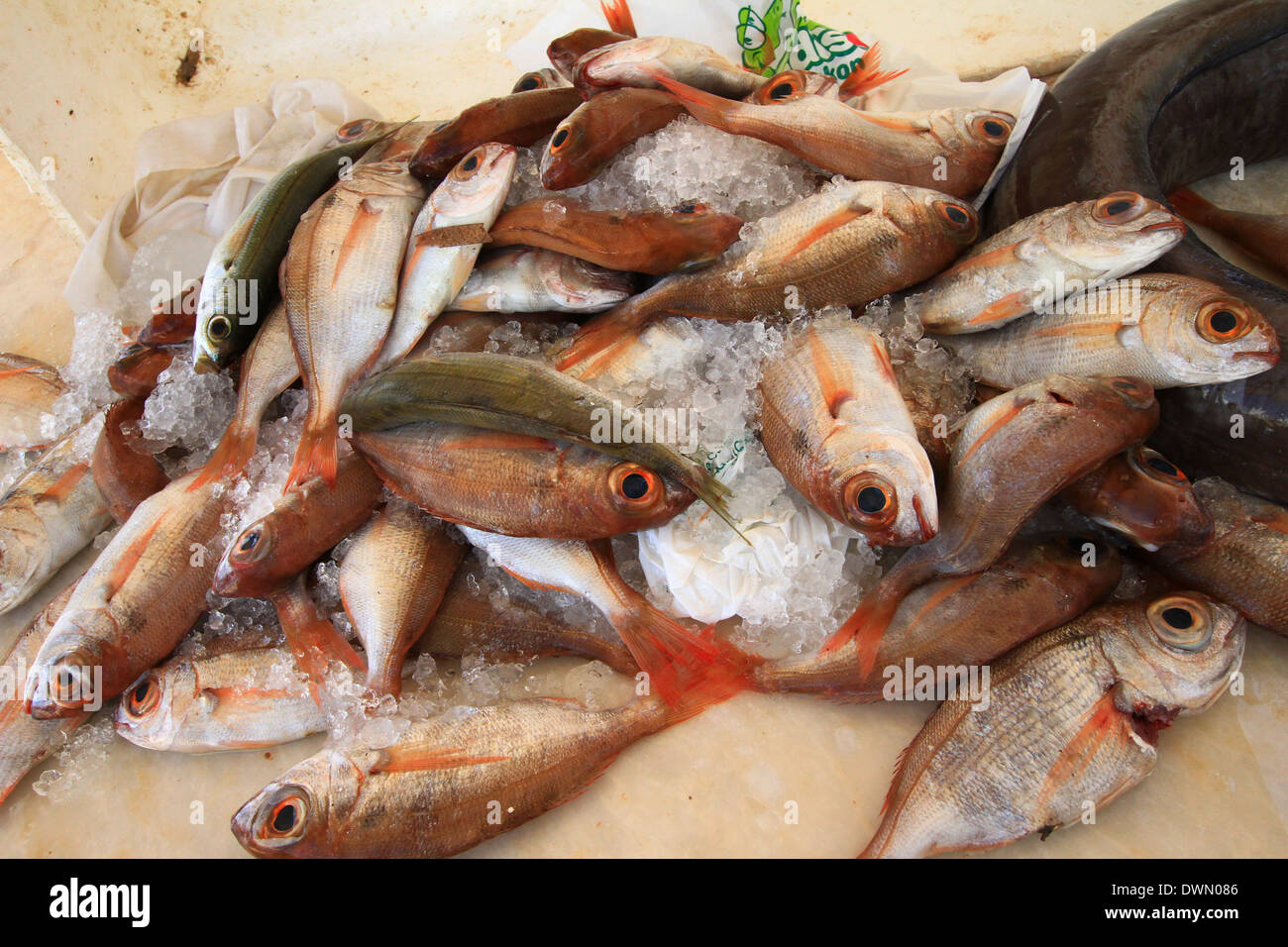Fresh fish laid out on the slab just landed,red snapper from the sea to the plate in hour some still moving.

Image details
Contributor:
Steve Welsh / Alamy Stock PhotoImage ID:
DWN086File size:
51.3 MB (2.6 MB Compressed download)Releases:
Model - no | Property - noDo I need a release?Dimensions:
5184 x 3456 px | 43.9 x 29.3 cm | 17.3 x 11.5 inches | 300dpiDate taken:
19 September 2013Location:
GreeceMore information:
Fishing has always been a traditional way to make a living in Greece; from time immemorial the Greeks have loved, feared and fished the sea, praying first to the god Poseidon and then later to St. Nicholas, patron of seafarers. The typical Greek fisherman draws his livelihood from the sea using many of the methods his ancestors used before him, and since the best of his catch is mostly sold to tavernas and hotels, visitors to Greece can usually count on being able to feast on a delicious variety of fresh-caught seafood. The Greeks call fishing with a line kathiti. Using minnows or shrimp for bait, they catch red mullet, perch and other kinds of small fish this way. To catch bigger game such as grouper and sea bass they head out into deeper waters and use a chunk of octopus or squid for bait. A large hook, called a tzonga in Greek, is a necessity. Greece has a small commercial fishing industry. There are numerous fleets of trawlers which head out to sea every night and put down mile-long nets and sieves which snare such big-game as swordfish and mackerel. These products usually end up the next day in the central fish markets of Athens and Thessaloniki. Fishing with fire, happens at night, with a pump-up kerosene lantern the key piece of equipment. You row your boat into the shallows and let it float. Then, standing in the prow with a long-handled harpoon in your hands, you stare down into the garishly-lit sea for foraging lobster and octopus. To catch one you must wield the 12-foot-long harpoon with the speed and accuracy of an Olympic fencer.